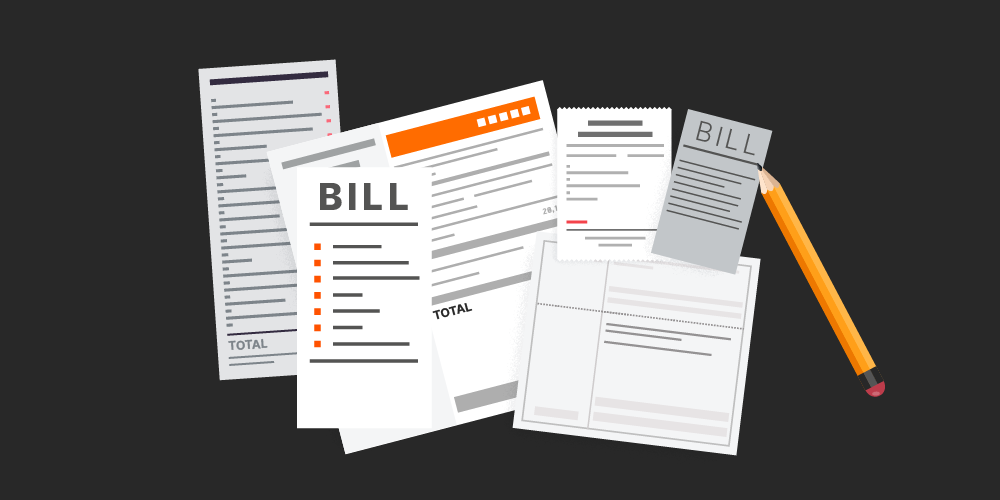— 9 min read
Security of Payments Act Victoria (VIC): What Contractors Need to Know


Last Updated Sep 10, 2025

Miles Cope-Summerfield
Senior Strategic Product Consultant
I'm a Strategic Product Consultant at Procore with a passion for delivering creative solutions through software. At Procore, I wear multiple hats, working in consulting, change management, product management, sales and customer success. Currently I work with Enterprise clients to consult on processes and drive Procore’s evolution as a market leader. My four years in construction/engineering equipped me with skills to combine technical knowledge with real world experience. During this time I grew a passion for sustainability through completing life cycle analyses on sustainable timber construction, and designing with modern technologies to promote eco-friendly solutions.

Tom Proctor
Solutions Engineer, Enterprise
13 articles
Before joining the world of technology, Tom worked as a Contract Administrator. This hands-on experience gives him a unique perspective that he leverages in his current role at Procore, where he has been for the past two years. Tom is passionate about helping construction businesses understand best practices around project management solutions and the many benefits they can provide.
Last Updated Sep 10, 2025

Understand your rights and obligations under Victoria's Security of Payment laws to get paid on time and protect your cash flow.
In Victoria, subcontractors and suppliers often face long waits for payment, even when work is completed on time and to spec. The Building and Construction Industry Security of Payment Act 2002 was introduced to reduce that risk and ensure a fairer, faster way to resolve payment disputes.
The Act gives claimants the legal right to claim and recover progress payments without relying on lengthy or expensive legal processes. It also lays out strict timeframes, enforcement options, and a clear path to adjudication if payment is delayed or withheld.
Note: This article is intended as a general guide only and doesn’t replace legal advice. If you're unsure about your situation, it's best to speak with a qualified legal professional.
Table of contents
Key Rights Under Victoria’s Security of Payment Act
Under the Security of Payment Act (SOPA), eligible claimants in Victoria are entitled to:
- Progress payments: Payment can be claimed for work done or goods/services provided, even if the contract doesn’t expressly allow for it
- Receive a payment schedule: Respondents must reply to payment claims within 10 business days (or sooner, if the contract specifies), outlining what will be paid and why any amount is withheld
- Escalate to adjudication: If payment is late or disputed, you can apply for adjudication without going to court
- Recover unpaid amounts: Scheduled or adjudicated amounts not paid by the due date can be recovered as a debt
- Automatic liability if no schedule is issued: If the respondent fails to provide a payment schedule on time, they’re liable for the full claimed amount
- Suspend work: You may suspend work if unpaid, without liability for resulting delays.
The Act also prohibits “pay when paid” clauses. Payment cannot be made conditional on the respondent receiving funds from someone else.
Pro Tip
The Security of Payments Act applies to both written and oral contracts, including combinations of the two. Claims can cover progress payments, milestone payments, and final payments on contracts entered into from 30 March 2007 onward.
Who Can Make a Claim?
The Security of Payment Act in Victoria allows contractors, subcontractors, and suppliers to claim payment for work done or goods provided under a construction contract. This includes:
- Head contractors claiming against principals
- Subcontractors claiming against head contractors
- Suppliers and consultants providing construction-related goods or services
- Professionals such as architects, designers, and surveyors
Equipment and plant hire companies
In Victoria, domestic building contracts between builders and homeowners are excluded from SOPA protections. These contracts fall under the Domestic Building Contracts Act 1995. This differs from states like New South Wales, where residential work is covered.
However, subcontractors and suppliers working on residential projects can still make claims under SOPA. For example, an electrician working for a builder on a home renovation is eligible to use the Act, even though the builder cannot use it against the homeowner.
What Work Can be Claimed?
The Security of Payment Act (VIC) allows contractors, subcontractors, and suppliers to claim payment for a wide range of construction work and related services carried out under a contract in Victoria.
The Act is deliberately broad to ensure wide industry coverage.
Construction Work
- Building, altering, maintaining, repairing, or demolishing structures
- Civil works such as roads, bridges, tunnels, pipelines, railways, and power infrastructure
- Installation of plumbing, mechanical services, air conditioning, lighting, security systems, and fire protection
- Excavation, site preparation, scaffolding, prefabrication, and restoration
- Painting, decorating, and on-site cleaning during construction
- Landscaping and external works
Related Goods and Services
- Supply of materials, components, or systems used in construction
- Hire of equipment for construction projects
- Labour used in carrying out construction work
- Professional services such as architecture, engineering, surveying, design, and landscape consulting
The SOPA also outlines what kinds of work can’t be claimed, which include:
- Domestic building contracts between builders and homeowners
- Work related to oil, gas, or mineral extraction
- Employment contracts (i.e., claims made by employees)
- Financial services contracts, such as those tied to loans, guarantees, or insurance
- Contracts not tied to actual work done or goods/services supplied
- Work performed or goods supplied outside Victoria (in which case, the relevant state or territory legislation applies
Timeframe and Deadlines
Strict timing rules underpin the Security of Payment Act (VIC). Missing a deadline can reduce your legal options, trigger automatic liability, or cause a claim to fail entirely.
Delays in payment can also arise from inconsistent communication and slow adoption of technology across project teams
Understanding the timing requirements under the Victorian Act and how they differ from those in other states is essential for protecting your payment rights.
General Payment Rules Under SOPA (VIC)
Under Section 12 of the Building and Construction Industry Security of Payment Act 2002, a progress payment becomes due and payable on:
- The date stated in the contract, or
- If the contract is silent, 10 business days after a payment claim is served
Serving a Payment Claim
The right to serve a payment claim in Victoria arises on each reference date, a term defined in the Act. A reference date is either:
- As set out in the contract, or
- If not specified, every 20 business days from when work or supply first occurred
Claims must be served:
- Within the period stated in the contract, or
- If not specified, within 3 months after the reference date
Only one payment claim can be made per reference date. However, unpaid amounts from previous claims can be rolled into a later claim.
Responding with a Payment Schedule
Respondents must serve a payment schedule:
- Within 10 business days of receiving the claim, or
- Within the time required by the contract, whichever is earlier
The schedule must state how much (if anything) will be paid, and give reasons for any withheld amount.
Pro Tip
If the respondent fails to issue a payment schedule within this timeframe, they are automatically liable to pay the full claimed amount by the due date.
Applying for Adjudication
If a payment schedule is served but the respondent underpays or does not make payment by the due date, claimants must apply within 10 business days of receiving the payment schedule.
If no payment schedule is provided and no payment is made, the claimant must notify the respondent of their intention to apply for adjudication within 10 business days of the due date, and allow 2 business days for the respondent to issue a payment schedule.
If no schedule is received, the claimant can apply for adjudication within 5 business days of that 2-day window closing.
After Adjudication
If the adjudicator determines an amount is payable, the respondent must pay:
- Within 5 business days of receiving the adjudication decision, or
- By a later date set by the adjudicator (if applicable)
Failure to pay enables the claimant to pursue enforcement through the courts or suspend work without breaching the contract.
The Payment Claim Process
The Security of Payment Act (VIC) sets out a clear process for claiming payment and resolving disputes. Each step must be followed carefully to preserve your rights under the Act.
Successfully navigating the payment claim process often depends on having solid business and administrative skills, which many contractors overlook.
Prepare the Payment Claim
The claimant must:
Identify the construction work or goods/services being claimed
State the claimed amount
Clearly state that the claim is made under the Building and Construction Industry Security of Payment Act 2002 (VIC)
Ensure only one claim is served per reference date (though unpaid amounts from earlier claims can be included)Respondent Issues a Payment Schedule
The respondent may reply with a payment schedule that:
Identifies the claim
States how much they will pay
Explains any difference between the claimed and scheduled amount
Failure to serve a valid payment schedule triggers liability for the full claimed amount.Take Action if Payment isn’t Made
If the respondent doesn’t pay, the claimant may apply for adjudication. Alternatively, the claimant may recover the amount as a debt in court.
In some cases, the claimant must first notify the respondent of their intent to adjudicate, allowing a brief window to issue a payment schedule.Adjudication (if needed)
An Authorised Nominating Authority (ANA) appoints an adjudicator to review the claim and issue a binding decision. Only respondents who provided a payment schedule may submit an adjudication response.
Enforce the Decision
If the respondent fails to pay the adjudicated amount, the claimant may suspend work (having given notice) and request an adjudication certificate and file it in court.
In limited cases, the claimant can claim payment directly from the respondent’s principal.
What Happens After You Make a Claim?
Once a valid payment claim is served, the next move falls to the respondent, who must provide a payment schedule within 10 business days of receiving the claim, or earlier if required by the contract.
This schedule must state the amount the respondent intends to pay (if any) and explain why any part of the claim is withheld.
If the respondent fails to provide a payment schedule, they become liable to pay the full claimed amount by the due date for the progress payment.
If the respondent also fails to pay, the claimant has three options:
- Recover the unpaid amount as a debt in court
- Suspend work or supply
- Apply for adjudication
Pro Tip
One key difference in Victoria: If the respondent raises new reasons for withholding payment during adjudication that were not included in the payment schedule, the adjudicator must give the claimant 2 business days to respond. This flexibility differs from the stricter rules in other states like NSW.
Adjudication
Adjudication is a fast, low-cost method for resolving payment disputes under the Security of Payment Act (VIC). It allows contractors and suppliers to recover unpaid amounts without going to court, though it’s often used as a last resort due to its potential impact on business relationships.
A claimant can apply for adjudication if:
- The respondent proposes to pay less than the amount claimed
- The respondent agrees to pay but fails to do so by the due date
- No payment schedule is provided, and the full claimed amount remains unpaid
Pro Tip
Modern construction management software can support the adjudication process by keeping communication records, documentation, and claims history organised. This helps substantiate claims and streamline submissions.
In cases where no payment schedule is given, the claimant must first issue a notice of intent before proceeding to adjudication. This gives the respondent a final 2 business days to respond.
Use the Security of Payment Act to protect your right to timely payment in Victoria.
Victoria’s Security of Payment Act helps contractors, subcontractors, and suppliers get paid faster by simplifying payment claims and disputes. Following the Act’s deadlines and steps closely will keep cash flowing and your projects moving.
See what’s coming in construction over the next decade.
Download the Future State of Construction Report for insights, trends, and innovations shaping the industry over the next 8–10 years.

Categories:
Written by

Miles Cope-Summerfield
Senior Strategic Product Consultant | Procore Technologies
I'm a Strategic Product Consultant at Procore with a passion for delivering creative solutions through software. At Procore, I wear multiple hats, working in consulting, change management, product management, sales and customer success. Currently I work with Enterprise clients to consult on processes and drive Procore’s evolution as a market leader. My four years in construction/engineering equipped me with skills to combine technical knowledge with real world experience. During this time I grew a passion for sustainability through completing life cycle analyses on sustainable timber construction, and designing with modern technologies to promote eco-friendly solutions.
View profile
Tom Proctor
Solutions Engineer, Enterprise | Procore
13 articles
Before joining the world of technology, Tom worked as a Contract Administrator. This hands-on experience gives him a unique perspective that he leverages in his current role at Procore, where he has been for the past two years. Tom is passionate about helping construction businesses understand best practices around project management solutions and the many benefits they can provide.
View profileExplore more helpful resources

Pull Planning in Construction: A Practical Implementation Guide
When teams plan in isolation, handoffs are unclear, and constraints emerge too late to influence the sequence, the outcome is predictable: Construction projects slip. This reduces schedule reliability and increases...

Construction Material Takeoffs: The Hidden Lever of Profit, Precision and Project Certainty
Accurate material takeoffs protect profit by controlling the most significant variables in project delivery: material cost and consumption. Incorrect quantities mean compromised budgets, forecasts and tender pricing. From there, a...

The Essential Guide to Construction Work in Progress (WIP)
Most construction financial problems don’t explode overnight — they drift quietly until month-end, when it’s too late to fix the damage. Work-in-progress (WIP) accounting changes that dynamic. When WIP is...

Overbilling in Construction: What It Is and How to Manage It
Does the billing actually reflect the work completed? That question isn’t always asked during a smooth progress claim. It usually comes up when certification tightens, a client challenges a payment...
